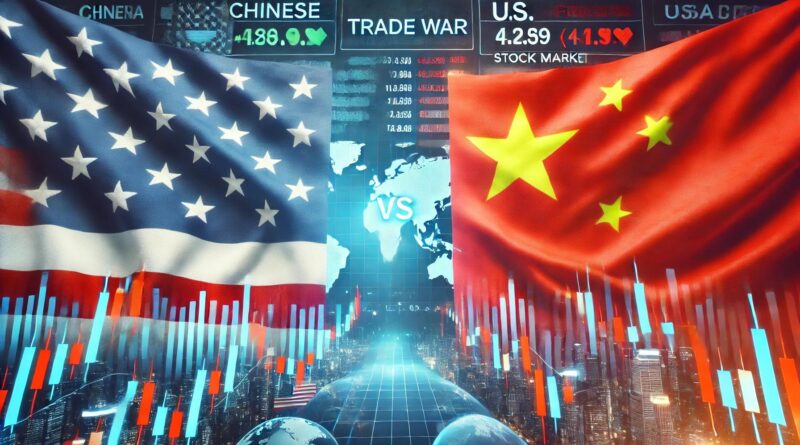Countdown to Looming U.S. Tariff Hike on Chinese Goods
The looming deadline that could see an escalation in tariffs on Chinese goods by the U.S. is rapidly approaching this Tuesday. The future state of these trade relations is still uncertain as previously announced intentions to extend the deadline by 90 days after the last trade discussions now hang in the balance. These discussions between U.S. and Chinese representatives took place last month, stirring expectations of a temporary reprieve from the tariff increase. However, the final decision resides in the hands of President Donald Trump, leaving the exact outcome vague for now.
While anticipation regarding the decision builds, businesses remain in a state of suspense, unsure of the repercussions this could have on international market conditions. The course of action regarding tariffs has seen numerous adjustments under Trump’s administration, making it difficult to predict the next move accurately. Each party involved in the trade talks has remained remarkably tight-lipped about their respective positions. The possibility of extending the deadline which would prevent an extreme tariff increase of up to 245% cannot be ignored.
Increasing tariffs essentially act as a compensatory measure towards the sizable and longstanding U.S. trade deficit with China. Interestingly, there was a significant dip witnessed in July, marking a 21-year record low as exports from China shrank due to the impending tariff threats. While it’s a common practice for the U.S. to leak the status of its trade negotiations, China’s policy considerably differs, restraining any disclosures until it’s time for significant announcements—a pattern observed as the current deadline approaches.
According to an interview with U.S. Vice President JD Vance, further tariffs are under consideration in response to China’s Russian oil purchases. Yet, Trump has yet to make concrete decisions on this. Ponderous tariffs levied on Chinese exports would undoubtedly strain Beijing, especially given the Chinese economy is in the delicate phase of recovery from a persistent property market slump.
Pandemic-induced repercussions have compelled millions towards gig work, inducing a subdued job market environment. Additionally, higher import levies on smaller packages from China have adversely impacted smaller scale industries, leading to an acceleration in layoffs. However, the U.S. is fundamentally dependent on Chinese imports for a plethora of goods, such as daily household necessities and apparel, to necessities for green tech like wind turbines, key computer chips, EV batteries, and the critical rare earth elements essential for their manufacture.
This reliance provides China with a significant advantage in its negotiations with Washington. Despite the possibility of increased tariffs, China continues to retain a competitive standing in several sectors. Chinese leadership acknowledges the new beginnings of the U.S. dealing with escalated prices due to previous tariff increases.
At present, Chinese imports entering the U.S. face a standard tariff of 10% along with an additional 20% relating to the issue with fentanyl. Some products may be subjected to even higher tariffs. When it comes to U.S. exports heading to China, they are hit with approximately 30% tariffs.
Before discussions led to a temporary ceasefire, there were threats expressed by Trump to inflict a harsh 245% import duty on Chinese merchandise. In response, China had indicated that it would reciprocate strongly, by increasing the tariff on U.S. exports to an astounding 125%. The repercussions of a trade conflict of such magnitude, playing out between the world’s largest economies, would assuredly send shock waves through the global economy.
This confrontation would inevitably affect various aspects of global commerce and diplomacy, from manufacturing supply chains and demand for commodities such as copper and oil, to geopolitical issues such as the conflict in Ukraine. Subsequent to a telephonic discussion with China’s leader Xi Jinping, Trump informed that a possible meeting might occur later in the annum.
The prospect of this meeting could contribute to facilitating a settlement between Beijing and Washington. In case the careful peace between both parties shatters, there might be a surge of trade tensions leading to escalating tariff rates. Such an escalation would inevitably deal additional blows to both economies and induce volatility in global markets.
Amid such uncertainties, corporations might hesitate when contemplating investments and hiring. Meanwhile, inflation could experience a sharp upward turn, adding fuel to an already complex situation.

